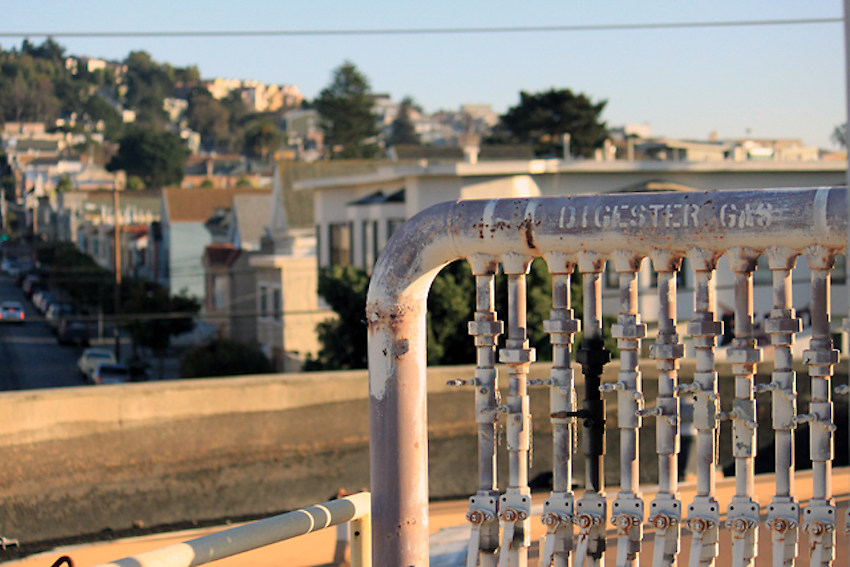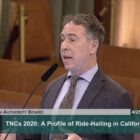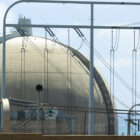With droughts expected to continue and worsen in coming years, water managers are exploring conservation approaches. Laura Feinstein, sustainability and resilience policy director at the urban think tank SPUR, explained the difficult choice between attempting to create separate drinking and nonpotable water systems, or developing robust wastewater recycling systems on “Civic.”
“I think we’re kind of at a point right now where people are realizing that we need to change our system of water management, but we haven’t quite figured out what direction to go yet,” Feinstein said.
San Francisco is already reusing some water to irrigate parks and golf courses, but bringing used water up to drinking standards would require a more robust recycling system — and state permission. California doesn’t allow direct potable reuse, in which wastewater is treated and goes back to drinking water pipes. Creating separate systems would be difficult and expensive, requiring extensive construction on existing infrastructure.
“That’s building a whole set of second pipes in your home to accommodate reuse. It can also mean building a whole second set of water mains to distribute recycled water all around the city,” Feinstein said.
San Francisco already requires very large new buildings to include some water reuse systems. In May, Supervisor Rafael Mandelman introduced legislation that would expand that requirement to smaller buildings, dropping the threshold from 250,000 square feet to 100,000 square feet and larger. It would also direct the city’s Public Utilities Commission to develop a plan to expand San Francisco’s recycled water supply.
Feinstein said more efficient water management has also led to improved energy efficiency and reduced greenhouse gas emissions.
“People don’t realize this, but California uses about 20% of its energy just to move, treat and heat water,” she said. “Reducing how much water we need to move around and treat and heat every day reduces greenhouse gas emissions. So we can slow down climate change by better managing water.”
A segment from our radio show and podcast, “Civic.” Listen at 8 a.m. and 6 p.m. Tuesdays and Thursdays at 102.5 FM in San Francisco, or online at ksfp.fm, and subscribe on Apple, Google, Spotify or Stitcher.










